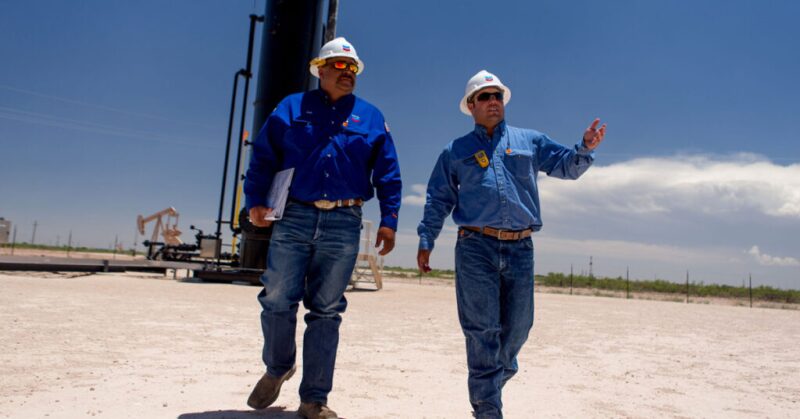Chevron is on track to market its first responsibly sourced gas (RSG) in the second half of 2022 following certification of gas production assets in Texas’ Midland Basin in the Permian and the DJ Basin in Colorado by Project Canary, a Denver-based climate tech and environmental assessment company.
Assessments of the US major’s North American assets included in a pilot project announced in February have earned Project Canary’s highest certification ratings for operational and environmental performance. Eighty-two wells achieved “platinum” status, and three wells receiving “gold” status based on continuous monitoring of its methane emissions, Chevron announced.
Gas produced by these wells can be marketed now as RSG-certified, a goal that Chevron wants to achieve in the second half of 2022. For natural gas to be sold as RSG, methane emissions must be continuously monitored and certified by a third party.
Chevron’s pilot project with Canary targets well-by-well certification at two sites in the Midland Basin in Texas and three sites in Chevron’s Mustang Development Area of the DJ Basin in Colorado. Natural gas produced at these five sites totals approximately 80 Mcf/D.
Project Canary’s TrustWell Certification program reviews and analyzes its clients’ operational impacts from individual wells and facilities on water, air, land, and the community. More than 600 data points within 24 operational categories are included in the analysis, the company said.
As part of the project, Chevron has deployed Canary X continuous, pad-level methane emissions monitoring units at select locations. Canary’s sensor portfolio includes high-fidelity spectroscopy-based methane detection and emissions quantification for oil and gas operations, plus Aeris Technologies’ laser-based gas analyzers covering other emissions, such as ethane, nitrous oxide, formaldehyde, ethylene oxide, and benzene.
Insuring Independence of IoT Monitoring
In a recent interview with JPT, Chris Romer, CEO and co-founder of Project Canary, pointed out that Canary owns the monitoring devices used to measure emissions 24/7 at its project locations, and in Chevron’s case, “those IoT [internet of things] devices do not go through Chevron’s SCADA system; so, the results are truly third-party, IoT-driven measurement.”
Project Canary is an SaaS-based (software-as-a-service) data analytics company organized as a public benefit corporation which is a for-profit company, but is also accountable to its shareholders for achieving a public benefit as part of its mission.
Steve Green, president, Chevron North America Exploration and Production, called Canary’s certification “an important milestone” that demonstrates the operator’s commitment to transparency and validates “our current practices and insights to inform and shape how we continue to achieve our lower-carbon aspirations.”
In 2020, Chevron reported that its US onshore production methane intensity was 85% lower than the US industry average, attributing the figure to the company’s emphasis on incorporating strategies to limit fugitive emissions in the design, construction, and operation of its facilities.
Those strategies have included the implementation of leak detection and repair, use of low-/no-emissions pneumatic devices, and the centralization of production facilities combined with continuous monitoring of emissions. The company also said it is expanding its methane detection capabilities to identify the best opportunities to further lower emissions and is on track to reduce methane emissions intensity by more than 50% from 2016 levels by 2028.
In early May, ExxonMobil obtained an “A” grade certification under the independent MiQ standard for managing methane emissions at its its Poker Lake, New Mexico, facilities in the Permian Basin while also becoming the first oil and gas company to earn the top certification for control of methane emitted from associated gas.
Responsible Energy Solutions, a Texas-based independent auditor in the field of differentiated natural gas assessments, carried out the study using MiQ standards.


